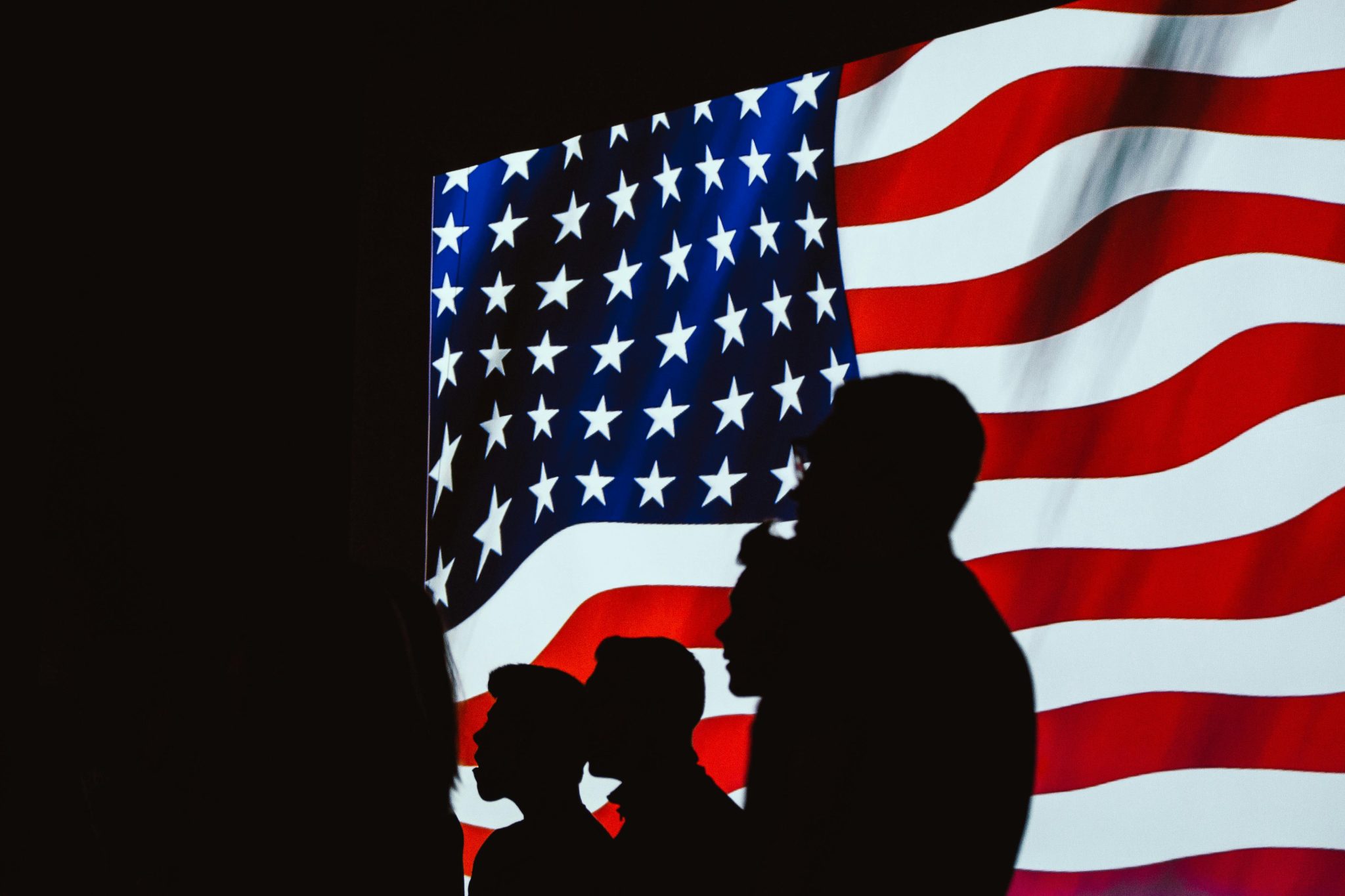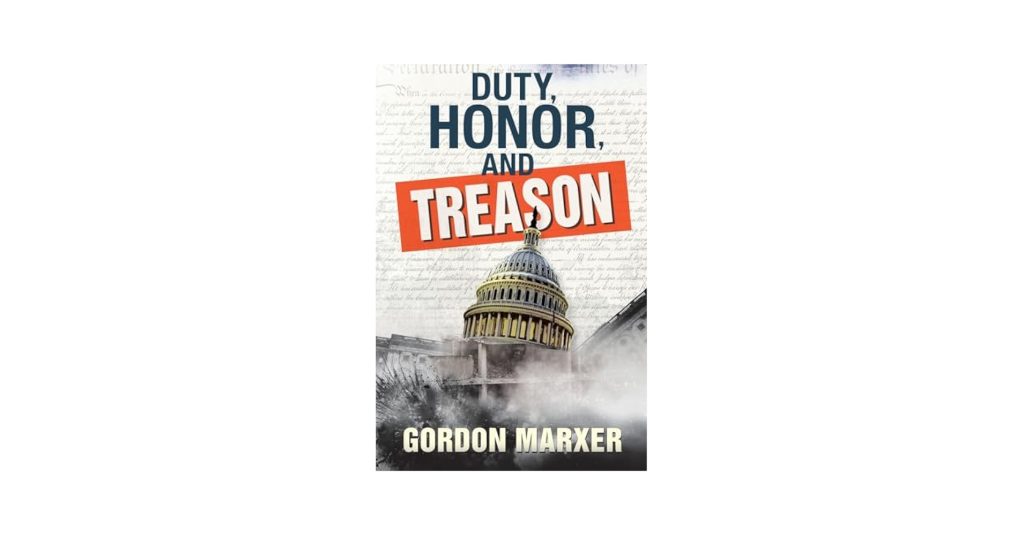An analysis of how Duty, Honor, and Treason renders the post-crisis state not as a failure of democracy, but as the natural outcome of public consent to control.
In political catastrophe literature, the most threatening phase is not the first one. The more sinister consequence is what comes next: the smooth transition between crisis and control, between mourning and management. Duty, Honor, and Treason by Gordon Marxer traverses this ground with alarming accuracy. The novel fails to sensationalize the fall of democracy. Instead, it discusses its reconfiguration. The bomb that destroys the top echelons of American leadership does not bring anarchy. It generates productivity. There is a silence in Washington, D.C. Not that resistance is smashed, but because it is never assembled. Marxer has created a capital with no deliberation, yet it remains conspicuously functional after institutional decapitation. The roads are cleared, Communication is regained Governance is restored with ruthless normality. The state, however, is wounded and yet survives. It never retreats it reasserts. The city no longer inhaled and exhaled to the beat of civil life, the novel notes. It had been reduced to a regulated entity. Movement was identified. Speech was purged. Even the air was engineered.” This change is not spectacle-ridden. Here, the novel gets its sharpest critique.

There are many historical analogs for such transitions. After September 11, 2001, the American government enacted sweeping security reforms under the banner of emergency. The Patriot Act, airport surveillance, and indefinite detention were not forced on a resistant public. They were welcomed. Similar patterns emerged after the Reichstag Fire Decree of 1933. There, a single event was used to suspend civil liberties in Germany. More recently, global pandemic responses have demonstrated the adaptability of democratic norms in the face of existential threats. Lockdowns, tracking applications, and border closures, each accepted in the name of safety, set a new precedent for state power.
Marxer does not replicate these events. He extrapolates from them. The nation in Duty, Honor, and Treason does not fall to tyranny. It evolves into structure. This evolution happens through bureaucrats and survivors, not villains or coups. The unelected president, once a cabinet secretary, rises through the constitutional chain. She acts with technocratic discipline, not lust for power. Her decisions are careful and seem moral. Yet they contribute to eroding civic expectation. When governance is technocratic and unchallenged, legitimacy shifts. It moves from being participatory to procedural.
Citizens in Marxer’s republic respond as expected. There is no uprising or mass protest. Adaptation takes its place. Curfews are respected. People navigate checkpoints without protest. The flag continues to fly, though its meaning has changed. “The flags still flew,” the text notes, “but they no longer represented anything fluid. They had become fixed emblems of something already concluded.” This line captures the novel’s quiet devastation. Democracy does not die. It ossifies.
Comparisons to George Orwell’s 1984 are inevitable, but they can mislead if not examined. Orwell’s dystopia is overtly cruel, with blunt and violent mechanisms. Marx’s vision is closer to Ishiguro’s Never Let Me Go, where oppression is subtle and the victims are complicit through passivity. Atwood’s The Testaments also offers a closer model. Its systems perpetuate themselves through ideological fatigue, not brute force. In Duty, Honor, and Treason, there is no grand betrayal. There is only a gradual abandonment of principles for the sake of continuity.
This abandonment is not sinister. It is practical. The military secures the capital with restraint. Federal agencies consolidate their work. Media outlets operate within a narrower range of acceptable discourse, but are not outright censored. What disappears is not speech, but variance. Debate fades, not because it is forbidden, but because it becomes irrelevant. The nation does not deliberate. It stabilizes.

The psychology behind stabilization is subtle. Citizens face uncertainty, but do not clamor for liberty. They ask for an order. This impulse is not cowardice, but exhaustion. The public has survived catastrophe and now wants assurance that something remains. In these conditions, surveillance no longer seems threatening. It reassures. Curfews are not seen as restrictions. They become gestures of care. When security dominates civic life, freedom becomes a negotiable commodity.
Marxer’s depiction stands out for its plausibility. The world he creates is not visibly dystopian. It is banal. There are no gray uniforms or propaganda murals. Instead, there are neighborhood checkpoints, stricter identification protocols, and new communication policies in place. The machinery of control is embedded in infrastructure, not ideology. This quiet, logical expansion of state power is characteristic of many modern states. It proceeds incrementally, often with the public’s blessing.
In this environment, resistance is unlikely to occur. Not because it is suppressed, but because it feels wrong. Challenging a stabilizing system seems ungrateful, even irresponsible. Characters who might dissent face a moral paradox. To rebel is to risk disrupting a fragile equilibrium. To comply is to betray democratic heritage. Most choose silence. Some choose obedience. None chose revolution.
This dynamic raises questions beyond fiction. Can a society trained for comfort accept the discomfort of liberty? Is freedom sustainable when safety acts as its own ideology? Marxer does not sermonize. He illustrates. His characters’ choices reflect a human pattern, a tendency to accept limits when limits offer clarity. After chaos, even control can seem like relief.
Duty, Honor, and Treason stands apart from conventional thrillers. It refuses to dramatize tyranny. The danger is not abuse power alone. It is also that power is invited. The novel reframes democratic fragility. The real threat is not invasion or betrayal. It is consent.
This insight changes how readers view post-crisis governance. The erosion of freedom is not always a failure of institutions. It is a complex process involving numerous factors. Sometimes, it is even a triumph of survival. When institutions prioritize survival over principle, continuity becomes the primary concern. Preserving the state’s original purpose outweighs its current purpose. In this frame, democracy is not destroyed; it is curated.
The last chapters of the novel are not melodramatic. No cathartic revolution, no melodramatic recovery. Rather, there is a new normal: efficient, responsive, and severely compromised. In the end, the reader is presented with an unpleasant fact: the biggest danger to democracy might not be the people who destroy it, but the people who reform it with the best of intentions. Is it possible to rediscover freedom when a society has become accustomed to being surveilled as a source of comfort? The question remains. Duty, Honor, and Treason fails to answer it. Rather, it allows the silence of the capital to speak. The harmony is not tranquility. It is the lack of resistance. Out of that silence, a new order is created.





















